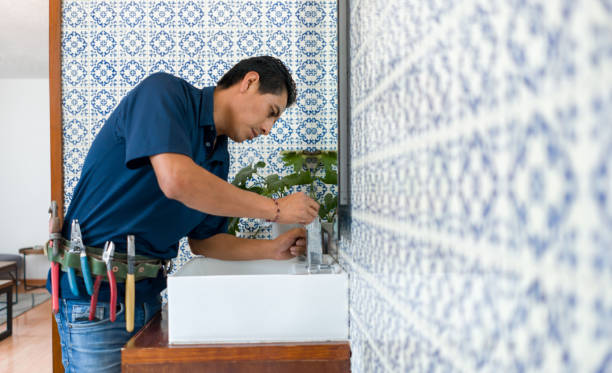Hotels face constant wear and tear from daily operations, and plumbing systems often bear the brunt of this usage. Leaks, clogged drains, and water pressure issues can quietly escalate, leading to costly repairs or unhappy guests. Regular maintenance and proactive inspections are crucial to keep operations running smoothly and to protect the property.
Overlooking small plumbing issues can snowball into major problems. A dripping faucet or a slow drain might seem minor, but these issues can indicate underlying damage. Detecting problems early ensures that guests enjoy a comfortable and safe stay.
Leaky Pipes and Hidden Water Damage
Leaks behind walls or under floors often go unnoticed until serious damage occurs. Water can seep into structural elements, leading to mold growth, rotting wood, or weakened support beams.
Even small leaks, if left unattended, can cause long-term damage that is expensive to repair. Some situations require an experienced plumber to assess the source and determine the proper repair method before it worsens. Regular inspections and monitoring of water bills can alert staff to hidden leaks before they become critical.
Preventive measures, like installing moisture sensors and scheduling routine inspections, help hotels stay ahead of potential damage. Early detection protects both the building’s integrity and the safety of guests.
Clogged Drains and Slow-Draining Fixtures
Slow drains or recurring clogs are common issues in hotels due to high usage. Hair, soap residue, and foreign objects often accumulate in pipes, reducing water flow.
Addressing these problems promptly prevents backups that could inconvenience guests and damage flooring or furnishings. In some cases, recurring clogs require specialized tools and expertise that only an experienced plumber can provide, ensuring the system is fully cleared.
Routine maintenance, such as using drain screens and scheduled cleaning, minimizes the chances of severe blockages. Staff should also be trained to recognize early warning signs and report issues immediately.
Faulty Water Heaters
Water heaters are critical for guest comfort, and malfunctions can affect the entire hotel. Inconsistent water temperature, strange noises, or leaks are all signs that the system may need attention.
Ignoring these warning signs can lead to total failure, leaving rooms without hot water and disrupting operations. Professional inspections and timely repairs maintain efficiency and prevent unexpected outages.
Routine flushing of tanks and monitoring for corrosion helps prolong the life of water heaters. Proactive care ensures guests enjoy consistent hot water throughout their stay.
Low Water Pressure Issues
Guests notice low water pressure quickly, and it can damage the hotel’s reputation. Causes can include sediment buildup, leaks, or aging pipes that restrict flow.
Identifying the source early allows management to resolve the problem before it impacts guests. Sometimes, resolving low pressure requires pipe replacement or specialized adjustments that require a plumber to complete safely and effectively.
Checking pressure in multiple areas of the building and inspecting older sections of piping can prevent sudden issues. Consistent monitoring keeps systems operating at optimal levels and improves guest satisfaction.
Backflow and Contamination Risks
Backflow occurs when water flows in the wrong direction, potentially introducing contaminants into the potable water system. Hotels must take this risk seriously to ensure guest safety.
Preventing backflow requires the installation and maintenance of proper devices, regular testing, and adherence to local regulations. Failure to manage this properly can lead to serious health risks and costly remediation.
Staff should be trained to recognize potential hazards and ensure that routine inspections are conducted. Taking these precautions safeguards the health of both guests and employees.
Pipe Corrosion and Aging Infrastructure
Older buildings often have aging pipes that corrode, causing leaks, discoloration, and reduced water quality. Metal pipes are particularly susceptible to rust and mineral buildup.
Replacing deteriorated sections of piping early prevents structural damage and costly emergency repairs. This type of work often requires an experienced plumber to ensure correct installation and compliance with safety standards.
Regular evaluations of the plumbing infrastructure allow management to plan upgrades before failures occur. Keeping records of repairs and replacements supports long-term maintenance planning.
Unexpected Water Pressure Surges
Sudden pressure surges can damage fixtures, appliances, and even pipes. Hotels with large plumbing systems are particularly at risk if valves or regulators are not properly maintained.
Monitoring water pressure and installing surge protection devices reduces the likelihood of costly damage. Any irregularities detected during checks should be assessed promptly by professionals to prevent further issues.
Scheduling regular system audits and ensuring all mechanical components function correctly keeps the plumbing system stable. Preventive care mitigates surprises that could disrupt operations.
Hidden plumbing problems in hotels can escalate quickly if not addressed with vigilance and expertise. Leaks, clogs, aging pipes, and water heater issues all have the potential to disrupt operations and compromise guest satisfaction. Proactive inspections, timely maintenance, and professional interventions are important to minimize these risks.
Investing in preventive measures and responding promptly to minor issues saves money, protects the building’s integrity, and ensures a positive experience for guests. By addressing plumbing concerns early and consistently, hotels maintain smooth operations and avoid emergencies that could affect both finances and reputation. Careful planning and attention to detail create a safe, efficient, and comfortable environment that benefits both staff and visitors.
Published by HOLR Magazine.




